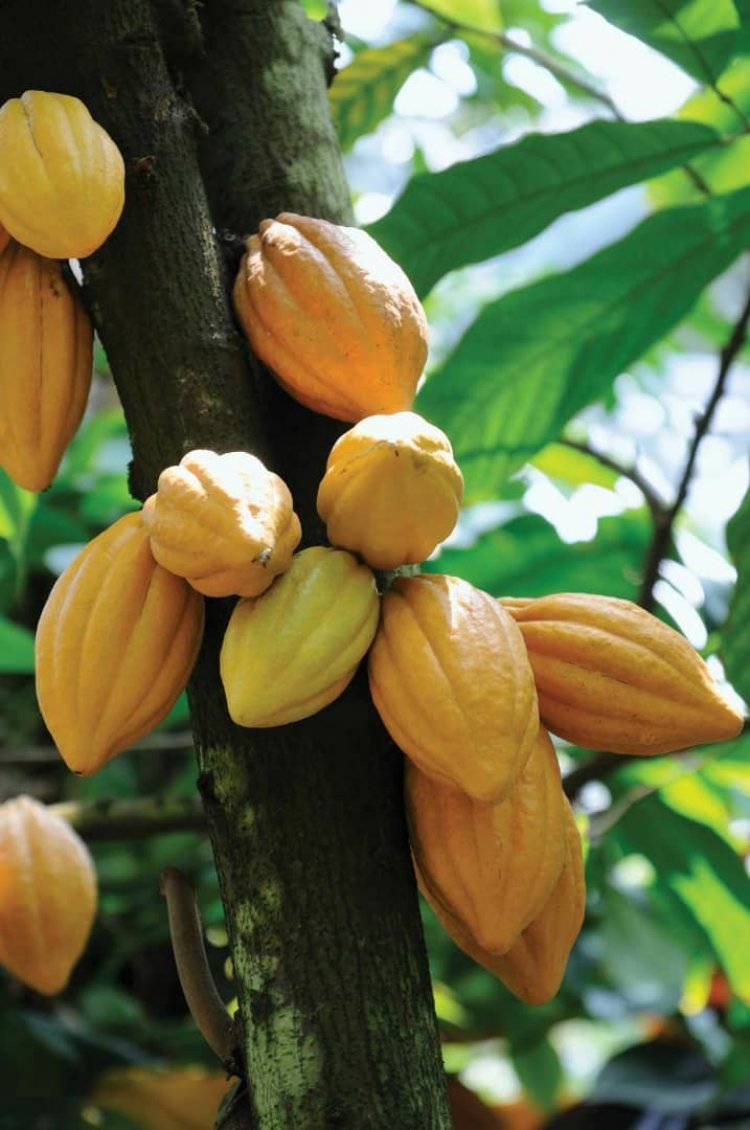IT HAS emerged that thousands of cocoa farmers living in Juaben enclave of the Ashanti Region have announced their readiness to resort to proceeds they realise from trading-off portions of their cocoa farms to illegal miners, popularly known as galamseyers since the government and Ghana Cocoa Board (COCOBOD) have completely neglected the farmers, Soireenews.com has gathered.
The hard sources closed to the farmers told this news outlet that the inability of farmers to raise substantial funds during off-seasons to buy farm inputs like fertilisers and fungicides, as well as hire labourers, compels some of them to sell farmlands and cocoa farms to illegal miners–especially portions on the shoulders of streams and river bodies in order to maintain their farms.
Additionally, farmers who might not be under any financial pressure willingly sell cocoa farms to the illegal miners.
On the backdrop to cocoa swollen shoot virus disease (CSSVD) wrecking farms in the Juaben district, farmers had considered it prudent to sell farms to the ‘galamseyers.
The Soireenews.com was reliably informed that an acre of farmland in that area is sold at around GH¢8,000 and above, with the valuation determined by the crops on the land.
The financial susceptibility of farmers and the lack-lustre approach by authorities to stopping activities of illegal miners have culminated in endangering the sustainability of cocoa production in the Juaben enclave.
However, a lot of farms in the Juaben were reported to have been tormented with moribund trees while others have been attacked by the CSSVD.
This was disclosed by the farmers led by the Juaben District Chief Farmer, Mr Kofi Mpianin who vowed not to encourage any of his children to venture into farming, especially cocoa growing farming.
According to Mr Mpianin, when he considers how he is suffering in farming but still get nothing from it because the government has given a black sight to the producers of cocoa in the country.
He stressed the central government has led the cocoa farming in the cocoa growing communities in the country astray to suffer by themselves and finally buy from them in a cheap price meanwhile the government has not supplied them with the fertilizer needed to make their crops productive.
"Cocoa which contributes in nation building has been abandoned by the government and the leaders of Ghana but boost of themselves that Ghana is the best cocoa producing country in Africa, " he noted said
"Looking at how though our works have become nowadays, when any chance open for mining,l will handle all my 120 hectors of cocoa land to miners to use for galamsey because he thinks that will help him than how he is suffering.
He called on the government to pay attention to the suffering to cocoa farmers and amend things with them if not the youth will not have any interest in involving themselves into farming and that will create a great woe for the country in future.
Another cocoa farmer who gave his name as Nana Kwaku Asare appealed to the Ghana Cocoa Board – and for that matter, government – to find innovative means of making farmers more financially resourceful in order to discourage them from selling farms to illegal miners so as to safeguard the future of the country’s cocoa industry.
He complained about inadequate and uneven distribution of farm inputs, particularly fertilizers and fungicides.
He said inputs distributed by the COCOBOD are woefully insufficient to meet farming needs, adding “the situation has pushed farmers to buy from the open market flooded with fake products.
“I requested 21 bags of fertiliser, but I received only four bags. I also had to share a bottle of agrochemical with another farmer. The mass-spraying gang on the other side has also been selective in this part of the country. These and many other challenges must be addressed if the country wants to achieve the one million metric tonne target,” he said.


 Freeman Koryekpor
Freeman Koryekpor 

































